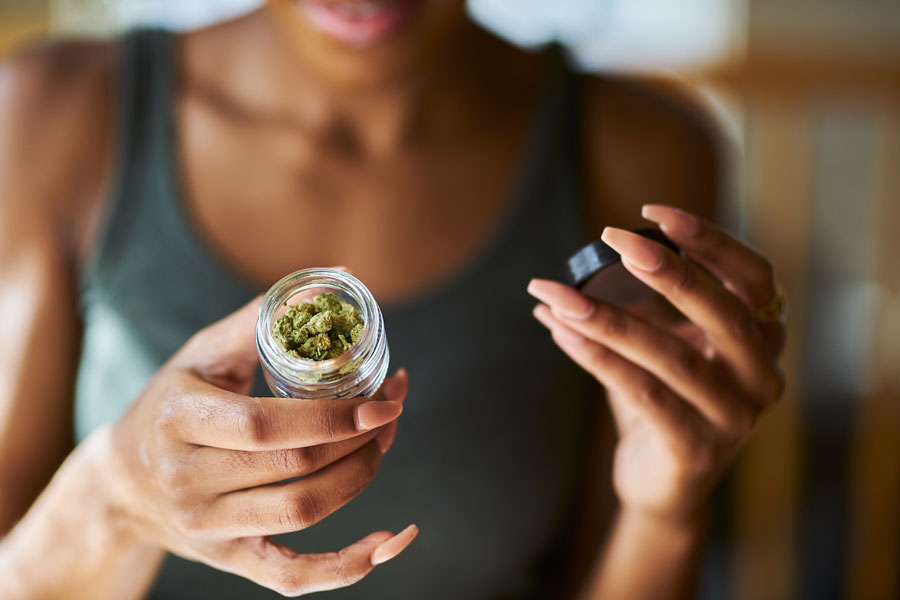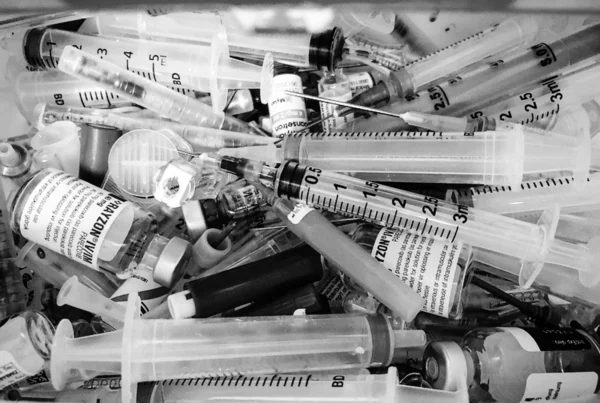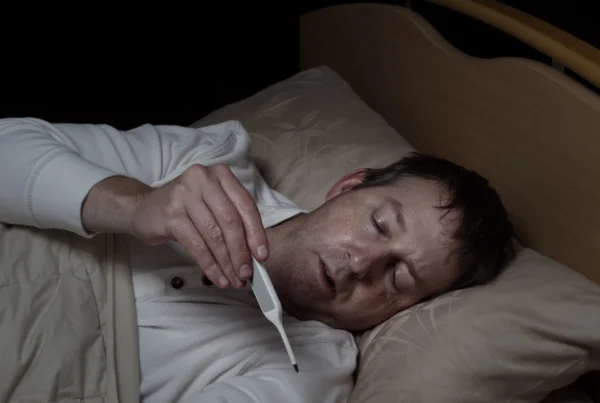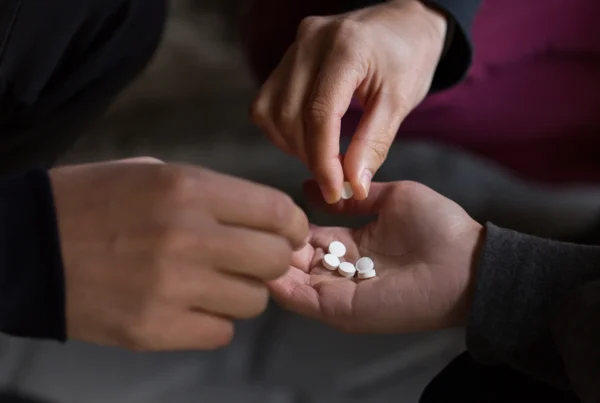
Table of Contents
Marijuana, also known as pot, herb, dope, grass, ganja, reefer, jazz salad, devil’s lettuce, the chronic, and of course, weed, are names for the cut, dried, and cured leaves and “buds” or flowers, of either the Cannabis indica or Cannabis sativa plant. This dried plant material is often ground up coarsely and consumed in several ways, such as a hand-rolled weed cigarette called a joint, rolled in the tobacco wrapper from a cigar often known as a blunt, or in any number of pipes made from a variety of materials.
Recently there has been a wave of legislation in the US surrounding the weed plant, with many states and cities beginning to regulate and tax it for adult use in a legal market. These weed plant “dispensaries” sell the dried flowers that addicts crave. This means the potential for becoming addicted to the weed plant is higher than ever in our nation’s history.
With the dangerous weed plant now as easy to get as a gallon of milk, the increasing threat of dependence and addiction is taking a toll on the populace as more and more people fall prey to the “harmless” weed plant. Not only does it have a host of mind-altering effects, but it has withdrawal danger and addiction possibility from day one.
Side Effects of the Weed Plant
The weed plant has several potentially serious effects on the body and mind. In addition, there is evidence that consuming the weed plant daily is more damaging to the user than just using occasionally, rarely, or staying away from the substance.
There have been some cognitive tests where those who used the weed plant were given a set of words to memorize, and the result of the tests was that the people who were intoxicated were able to recall fewer words on average than the people who were not using. This led the researchers conducting the experiment to conclude that the weed plant had a measurable effect on the ability of the brain to create and store memories and to recall them in the short term.
There is also research that indicates that those who are dependent on the daily use of the weed plant for several years have a measurably more challenging time completing tasks that were created to test mental function when they were pitted against other people who either smoked occasionally then stopped and those who had never smoked. It is safe to conclude, then, that the regular, long-term use of marijuana can decrease cognitive function in the user.
Withdrawal Symptoms When Detoxing from the Weed Plant
When you become dependent on the weed plant, whether you are experiencing physical or psychological dependence, you will find that stopping using the substance can lead to physical and psychological withdrawal symptoms. These withdrawal symptoms can occur in as little as one day without substance use.
Most symptoms will be unique to the user, and they will vary quite significantly from person to person, based on many factors that include the time that they have been using, the strength of the weed plant that they have been consuming, their metabolism, and more. As a result, some people may not experience any symptoms, while most people will experience at least one or two. Occasionally, users will experience a very uncomfortable detox with various symptoms.
While most of the symptoms will become evident after 24-48 hours without use, gradually increasing in strength over the next day or two when they will be at their peak. After this acute withdrawal phase, they will begin to subside and taper off for most people, being gone in a week to 14 days. However, some people will experience them for longer periods, called the post-acute withdrawal stage, and may require therapy or counseling to help reduce them.
Withdrawal symptoms when detoxing from weed are often reported to include increased feelings of paranoia, increased levels of anxiety, restlessness, insomnia or hypersomnia causing alterations in the natural sleep cycles, and changes in appetite. When detoxing from THC be mindful of staying hydrated, regularly exercising, and a healthy diet.
How to Know If You Are Addicted to the Weed Plant
One of the ways to know immediately if you are addicted to the weed plant is if you find yourself consuming it every day, which means there is probably both physical and psychological dependence that has been built up over time. This dependence means that you will need to consume the weed plant daily to feel normal or for your brain and body to function normally.
Another strong indication that you could be addicted to the weed plant is its damage to your ability to maintain stable mental health, allowing for regular social interactions and behavior and healthy interpersonal relationships. As a result of using the weed plant every day, they frequently begin to prioritize using it over maintaining healthy relationships with their family, friends, and even their career.
A very significant sign of being addicted is using the weed plant to the detriment of your finances, as those who are addicted will frequently place using the weed plant above other financial responsibilities. This tendency to put the weed plant first does not stop at relationships and finances. Those who have become dependent on the weed plant will also use it despite obvious negative effects on their academic grades or job performance. If you are concerned about being drug tested for work, this may be a good indicator your use is problematic. For reference, THC can be detected in hair for up to 90 days.
How to Get Help if Addicted to the Weed Plant
If you or someone you care about may be addicted to the weed plant, you should first tell someone so that the support network can begin being built. Then the individual should reach out to a recovery center, where experienced treatment professionals can answer any questions and start planning the detox and recovery from the weed plant. When working with a premier treatment center, the recovering individual can have professional guidance on how to best approach their recovery. Giving them the tools they need to maintain recovery in the future.
Sources:
Ocean Recovery has strict sourcing guidelines and relies on peer-reviewed studies, academic research institutions, and medical associations for our references. We avoid using tertiary references as our sources. You can learn more about how we source our references by reading our editorial policy.
- Turner A, Agrawal S. Marijuana – StatPearls – NCBI Bookshelf. Published August 29, 2021. Accessed July 31, 2022. https://www.ncbi.nlm.nih.gov/books/NBK430801/
- Hirst RB, Young KR, Sodos LM, Wickham RE, Earleywine M. Trying to remember: Effort mediates the relationship between frequency of cannabis use and memory performance. J Clin Exp Neuropsychol. 2017;39(5):502-512. doi:10.1080/13803395.2016.1237617
- Dahlgren MK, Sagar KA, Racine MT, Dreman MW, Gruber SA. Marijuana Use Predicts Cognitive Performance on Tasks of Executive Function. J Stud Alcohol Drugs. 2016;77(2):298-308. doi:10.15288/jsad.2016.77.298
- Stubblefield H. Hypersomnia: Causes, Symptoms, and More. Healthline. Published August 15, 2019. Accessed July 31, 2022. https://www.healthline.com/health/hypersomnia
OCEAN RECOVERY EDITORIAL GUIDELINES
The internet contains a vast amount of misinformation, but when it comes to your health only peer reviewed, research centered data matters. At Ocean Recovery, all content published throughout our website has been rigorously medically reviewed by a doctorate level clinician, and cross checked for medical accuracy. Our editorial process helps our readers trust that the information they are consuming is factual and based upon scientific data. Your health is our top priority, find out more about how we safeguard the integrity of information on our website. Read More About Our Process






